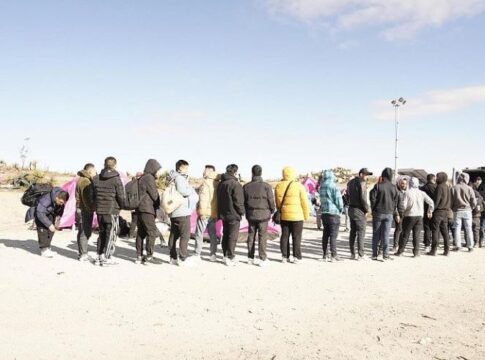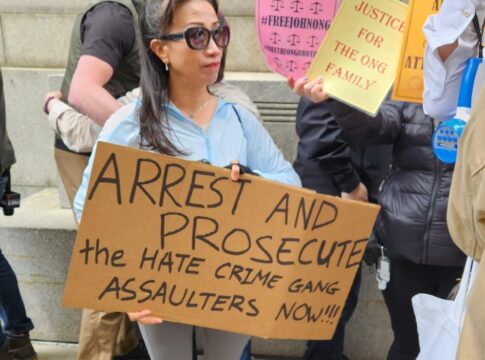Stepping into someone else’s shoes can now be as easy as putting on a virtual reality headset.
Studying the impacts of racism through virtual reality programs is the latest trend in VR technology, Axios reports, potentially changing the face of workplace trainings and college curriculums.
Projects such as Mapping Amache give users a chance to explore Camp Amache, a WWII Japanese internment camp in Granada, Colorado. The ‘I Am A Man’ VR Experience sends users back to the 1968 Memphis Sanitation Workers’ Strike during the Civil Rights Movement.
“This is a powerful medium that allows you to experience the perspective of another person,” Derek Ham, the ‘I Am A Man’ creator, said. “Maybe, just maybe, you’ll change your own perspective.”
Virtual reality can help address workplace discrimination, CNN Business reports. Vantage Point, a Los Angeles company, provides workplace trainings covering issues such as sexual harassment and systemic racism.
LATEST STORIES
“I realized how effective it is in truly putting you in a person’s shoes,” Vantage Point Founder Morgan Merce said, CNN reports. “Giving you a first person experience of what it’s like for somebody to flinch every time you walk by them, or what it’s like for somebody to yell words at you on the street, or what it’s like for somebody to stand a little bit too close.”
This virtual reality medium is also being studied in schools, Columbia News reports. Columbia University’s Courtney Cogburn teamed up with Stanford University’s Jeremy Bailenson to create a VR film depicting systemic racism in the life of a fictional Black man, Michael Sterling.
“We wanted people to have a visceral sense of what this feels like,” Cogburn said. “It’s more likely to trigger empathy, and to help you understand the scope and nature of racism and racial inequality in our society.”
As the coronavirus pandemic led to thousands of anti-Asian hate incidents, finding engaging ways to teach lessons on race and discrimination is crucial.
According to San Francisco State University professor Russell Jeung, the surge of xenophobia will go on long after the end of the pandemic. Jeung works with the Stop AAPI Hate Reporting Center, which collects reports of anti-Asian racism.
“We don’t think the surge of hate will decrease,” Jeung said in a previous AsAmNews article.
AsAmNews has Asian America in its heart. We’re an all-volunteer effort of dedicated staff and interns. Check out our new Instagram account. Go to our Twitter feed and Facebook page for more content. Please consider interning, joining our staff, or submitting a story.









